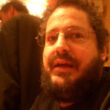The Long Cosmos: A Novel
(Libby/OverDrive eBook, Kindle)
Available Platforms
Description
The thrilling conclusion to the internationally bestselling Long Earth series explores the greatest question of all: What is the meaning of life?
2070-71. Nearly six decades after Step Day, a new society continues to evolve in the Long Earth. Now, a message has been received: 'Join us.'
The Next'the hyper-intelligent post-humans'realize that the missive contains instructions for kick-starting the development of an immense artificial intelligence known as The Machine. But to build this computer the size of an Earth continent, they must obtain help from the more populous and still industrious worlds of mankind.
Meanwhile, on a trek in the High Meggers, Joshua Valienté, now nearing seventy, is saved from death when a troll band discovers him. Living among the trolls as he recovers, Joshua develops a deeper understanding of this collective-intelligence species and its society. He discovers that some older trolls, with capacious memories, act as communal libraries, and live on a very strange Long Earth world, in caverns under the root systems of trees as tall as mountains.
Valienté also learns something much more profound . . . about life and its purpose in the Long Earth: We cultivate the cosmos to maximize the opportunities for life and joy in this universe, and to prepare for new universes to come.
More Details
Similar Series From Novelist
Similar Titles From NoveList
Similar Authors From NoveList
Published Reviews
Booklist Review
The conclusion to the Long Earth series, the recent collaboration between Stephen Baxter and the late Terry Pratchett, continues to expand the borders of a seemingly endless universe. The now aging Joshua Valiente, one of the earliest explorers of the string of alternate Earths known as the Long Earth, takes another sabbatical of stepping into various worlds, only to end up injured and rescued by a group of the singing, gorilla-like humanoids known as trolls. Joshua's experiences with the trolls intersect with a mysterious message being broadcast all across the Long Earth, a message that may hold the key to not just one more Long planet but an entire Long universe. The Long Cosmos shares the same sense of cosmic wonder and the utopian impulses of its predecessors, with less of the at times weak plotting that got in the way of earlier volumes. Readers of Pratchett expecting humor on the level of Discworld may be disappointed, but those looking for an expansive and engaging read should give it a try.--Keep, Alan Copyright 2016 Booklist
Publisher's Weekly Review
In this conclusion to the Long Earth series (following 2015's The Long Utopia), set in 2070, Baxter (Ultima) and the late Pratchett (The Shepherd's Crown) take their decades-spanning tale of an infinite chain of parallel Earths to the next level as a mysterious signal from the far reaches of the galaxy urges humans to "join us." While the ultra-intelligent subset of humans known as the Next build a continent-sized supercomputer on a distant Earth to further decipher the message, the famous explorer Joshua Valiente takes a sabbatical far from home, which leads him to an eye-opening encounter with nomadic trolls. Eventually Joshua joins the crew of humankind's inaugural interstellar mission and discovers just what lies at the heart of the galaxy. The story starts off slowly, but it quickly picks up speed as the mystery deepens and the myriad threads come together. There's a definite sense of mortality, but also a sense of wonder as the characters embrace the vast unknown in what might be considered the perfect allegory for Pratchett's final years. It's a wholly satisfying conclusion to the series, though vast amounts of potential remain in the concept. Agent: Christopher Schelling, Selectric Artists Literary and Talent Management. (June) © Copyright PWxyz, LLC. All rights reserved.
Kirkus Book Review
Final installment of the series (The Long Utopia, 2015, etc.) wherein Earth is one of an indefinite sequence of worlds occupying the same space but separated by some higher dimension (one can almost hear Pratchett murmur, "Nobody knew for certain, but it was probably quantum"). This Long Earth, discovered by people with a natural ability to step between worlds, was opened to everybody by means of a simple device. The only constraints are that most people suffer debilitating nausea with repeated steps and that it's impossible to carry iron from world to world. Also, there are no other humans anywhere, though there are sapient beingssinging, gorillalike trolls, belligerent, doglike beagles, and so forth. By the year 2070, airships equipped with rapid-step devices ply the trade and passenger routes between worlds. Far from the original, or Datum, Earth (devastated by a vast volcanic explosion and partially abandoned), the post-human Next, who generally hold ordinary humanity in contempt, pick up a radio signal from the center of the galaxya signal that somehow resonates with the trolls and other nonhumans and whose message is simple yet devastating: "Join us." Embedded in the message are instructions for constructing a huge artificial intelligence, but to build it the Next will need the cooperation and active assistance of all the industrialized worlds. Elsewhere, readers will be reacquainted with familiar parties such as Joshua Valient, one of the original natural steppers, Lobsang, the ubiquitous AI who invisibly runs things, and retired churchman Nelson Azikiwe. Once again, the purpose is less to tell a story than to discover and explore, in both physical and philosophical senses, an infinite landscape of infinite possibilities. And series fans seem OK with the less-than-compelling narrative and not-especially-engaging characters. Scientist Baxter's naturally rather pedantic and dispassionate tone needed more of the warmth and wit of the late fantasist Pratchett (who died in 2015). Copyright Kirkus Reviews, used with permission.
Booklist Reviews
The conclusion to the Long Earth series, the recent collaboration between Stephen Baxter and the late Terry Pratchett, continues to expand the borders of a seemingly endless universe. The now aging Joshua Valiente, one of the earliest explorers of the string of alternate Earths known as the Long Earth, takes another sabbatical of "stepping" into various worlds, only to end up injured and rescued by a group of the singing, gorilla-like humanoids known as trolls. Joshua's experiences with the trolls intersect with a mysterious message being broadcast all across the Long Earth, a message that may hold the key to not just one more Long planet but an entire Long universe. The Long Cosmos shares the same sense of cosmic wonder and the utopian impulses of its predecessors, with less of the at times weak plotting that got in the way of earlier volumes. Readers of Pratchett expecting humor on the level of Discworld may be disappointed, but those looking for an expansive and engaging read should give it a try. Copyright 2014 Booklist Reviews.
Library Journal Reviews
In this definitive-sounding work, completed 18 months before sf legend Pratchett's death in March 2015, the hyperintelligent post-humans called the Next receive instructions about building a giant artificial intelligence known as The Machine. With a 50,000-copy first printing.
[Page 51]. (c) Copyright 2016 Library Journals LLC, a wholly owned subsidiary of Media Source, Inc. No redistribution permitted.PW Annex Reviews
In this conclusion to the Long Earth series (following 2015's The Long Utopia), set in 2070, Baxter (Ultima) and the late Pratchett (The Shepherd's Crown) take their decades-spanning tale of an infinite chain of parallel Earths to the next level as a mysterious signal from the far reaches of the galaxy urges humans to "join us." While the ultra-intelligent subset of humans known as the Next build a continent-sized supercomputer on a distant Earth to further decipher the message, the famous explorer Joshua Valiente takes a sabbatical far from home, which leads him to an eye-opening encounter with nomadic trolls. Eventually Joshua joins the crew of humankind's inaugural interstellar mission and discovers just what lies at the heart of the galaxy. The story starts off slowly, but it quickly picks up speed as the mystery deepens and the myriad threads come together. There's a definite sense of mortality, but also a sense of wonder as the characters embrace the vast unknown in what might be considered the perfect allegory for Pratchett's final years. It's a wholly satisfying conclusion to the series, though vast amounts of potential remain in the concept. Agent: Christopher Schelling, Selectric Artists Literary and Talent Management. (June)
[Page ]. Copyright 2016 PWxyz LLCReviews from GoodReads
Citations
Pratchett, T., & Baxter, S. (2016). The Long Cosmos: A Novel . HarperCollins.
Chicago / Turabian - Author Date Citation, 17th Edition (style guide)Pratchett, Terry and Stephen Baxter. 2016. The Long Cosmos: A Novel. HarperCollins.
Chicago / Turabian - Humanities (Notes and Bibliography) Citation, 17th Edition (style guide)Pratchett, Terry and Stephen Baxter. The Long Cosmos: A Novel HarperCollins, 2016.
Harvard Citation (style guide)Pratchett, T. and Baxter, S. (2016). The long cosmos: a novel. HarperCollins.
MLA Citation, 9th Edition (style guide)Pratchett, Terry, and Stephen Baxter. The Long Cosmos: A Novel HarperCollins, 2016.
Copy Details
| Collection | Owned | Available | Number of Holds |
|---|---|---|---|
| Libby | 2 | 2 | 0 |










































